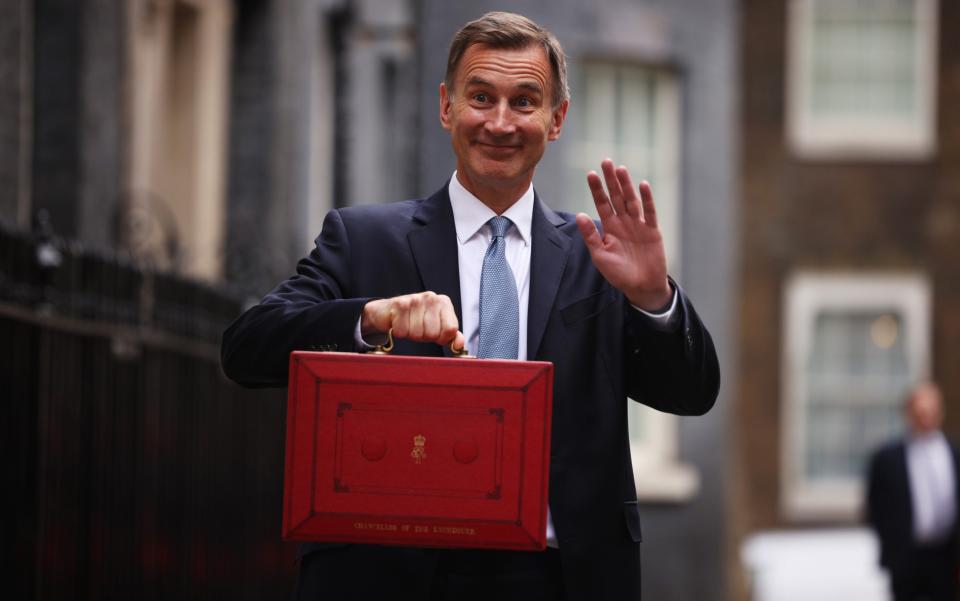Why £125,000 does not make you rich in Britain today

What it means to be rich is being redefined next month with the point at which the 45p income tax rate – the highest rate in the land – kicks in, falling to £125,140.
The Chancellor is lowering the threshold of the “additional” rate, designed for the wealthiest in society, from its current £150,000 level. Someone earning £150,000 a year will pay nearly £2,000 a year extra in income tax, as a result.
It is a blow to workers who have managed to break the six-figure salary watershed, many of whom do not feel wealthy at all.
Now, the tax squeeze, rising bills, and the loss of a string of perks means even supposedly top earners are feeling the pinch.
Soaring mortgage and childcare costs have left families in relatively modest terraced homes in London and the South-East, where mortgages of £500,000 or more are common, quickly using up what take-home pay is left after tax.
The Telegraph’s analysis found that, after expenses, a £125,000-a-year earner can be left with just £1 for every £10 they make after taxes and basic outgoings. This assumes student loan repayments, pension contributions of 8pc, a 25-year mortgage of £600,000 at today’s 4.25pc central Bank Rate and childcare costs of £1,000 a month. This is before household bills, transport and other costs are considered.
Academic Dr Gerry Mitchell and author of Uncomfortably Off – written alongside Marcos González Hernando and due to be published in May – said those on £125,000 were among the top 2pc of earners, but that their money no longer stretches as far as it once did.
“Very often high earners will be working in highly unequal environments where the people they network with earn about as much or more than they do, so they are likely to think their income is about average.
“People on £125,000 are relatively close to the top 1pc of earners (those on around £180,000 a year) in their workplaces and social networks, but the rungs ahead of them are further and further apart, so they don’t feel especially high up the ladder.
“The truly rich are always above you,” she said.
“In addition, as inflation grows and the economy and the tax regimes are increasingly favourable to assets and wealth, more of their income is taxed at a higher rate; so even high-income earners may see their money doesn’t stretch as far as it used to.”
The situation is compounded by the removal of tax perks and giveaways.
The £12,570 personal allowance, the sum you can earn each year without paying any income tax, begins to be lost once you earn over £100,000. It means paying an effective tax rate of 60pc on a portion of your income above this amount.
High earning parents will also miss out on Jeremy Hunt’s 30 hours childcare giveaway announced in his March Budget, worth thousands for families. Again – earning more than £100,000 a year is the cliff edge. Once either parent earns too much, their children are disqualified from help toward nursery and childminder costs.
Perversely it means a parent with two young children earning up to £134,500 will be worse off than one earning £99,000, according to the Institute for Fiscal Studies.
Changes to tax rules are also reducing the spending power of higher earning groups.
Andy Butcher, of the private bank Raymond James, said small business owners would be particularly hit by changes in dividend rules from April.
“An entrepreneur who runs a small business but draws their income as a dividend is hit particularly harshly by the hike in corporation tax, dividend tax and National Insurance rates, plus the upcoming reduction in the additional tax rate threshold.
“If the business owner made say £170,000 profit and drew this as a dividend, their effective rate of tax has increased by over 8pc given the changes over the past year, resulting in a reduction in net income equal to around £750 a month,” he said.
“The direction of tax policy coupled with high inflation and rising interest rates is going to continue the squeeze on these families labelled ‘rich’, and be a further drag on economic output. While everything is of course relative, the reality is this income group is feeling far from rich at the moment,” he added.
How much income do you need to be considered truly rich? Let us know what you think in the comments below
This article was first published on March 27 2023, and is kept updated with the latest information.

 Yahoo Finance
Yahoo Finance 